USW academics receive Learned Society of Wales Fellowship
23-04-2024
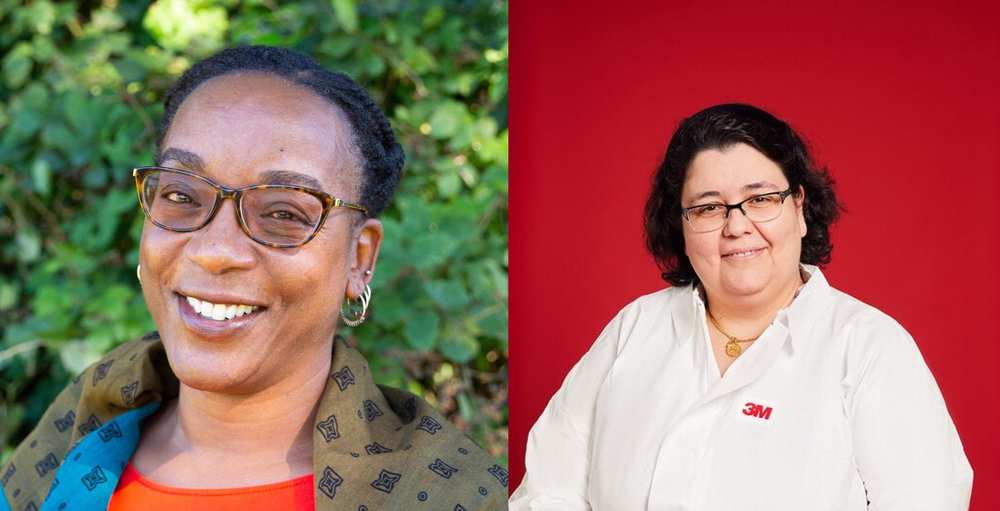
(left to right) Professor Roiyah Saltus and Professor Sandra Esteves
Two University of South Wales academics have been named among the 43 new Fellows of The Learned Society of Wales.
Professor Sandra Esteves, Professor in Bioprocess Technology for Resource Recovery: Energy and Materials; and Professor Roiyah Saltus, Professor of Sociology, are among the academics, researchers and professionals to receive a Fellowship from the Learned Society, which represents the best of Wales’ academic, cultural and civic life.
The Society’s strategy puts the Fellows at the centre of its work. They are vital in cementing the Society’s reputation as an independent and authoritative voice that can make an impact on Welsh society. Their connections, experience, and expertise will be key to it reaching its aim of ensuring that research in Wales contributes to a thriving nation.
Almost a third of the new Fellows, who are elected by the existing Fellowship, are from ethnic minority backgrounds, by far the highest percentage ever, an important outcome as the Society continues working to improve its diversity.
The new Fellows come from a wide range of academic and professional backgrounds, covering science, technology, engineering and medicine to the humanities, arts and social sciences. There are notable strengths this year in oncology, music composition and performance and sustainability and the green economy.
In addition, two new Fellows, Professor Erminia Calabrese and Professor Aimee Morgans, are recent recipients of Learned Society of Wales medals, further evidence of how the medals are a marker of exceptional research talent.
Professor Sandra Esteves said: “I am delighted to become a member of the Learned Society as my goals and achievements are reflected in the ethos of the society.
“I aim to contribute to the society’s work related to research, knowledge and education associated with biotechnologies when placed at the heart of the circular economy and net-zero.”
Professor Roiyah Saltus said: “I am honoured by my election to the Fellowship. I am looking forward to working with other Fellows to advance research and scholarship for the good of Wales, in particular.
“I have been supported by those who proposed the nomination and believed in me. I too will seek to amplify the work of colleagues within USW and support their pathways to joining The Learned Society of Wales.”
“The announcement of our new Fellows is always a highlight of the Society year,” said Professor Hywel Thomas, the Society’s President.
“The work of the Society, the innovation roundtables we run, our Early Career Researchers Network are all built on the knowledge and contributions of our Fellows.
“The Fellows we announce today add to this by bringing the most extraordinary range of skills and insight and experience. Being able to draw upon their collective expertise to support the work we do means we can have a real impact as a source of trusted, evidence-informed advice.”
Olivia Harrison, the Society’s Chief Executive, welcomed the new Fellows and said: “Following a campaign spearheaded by the Society’s Council, we are especially pleased to see a significant increase in new Fellows who are from ethnic minority backgrounds.
“We are determined to continue improving the Society’s diversity. We want to ensure we are a welcoming and inclusive Society in which we encourage Fellows from under-represented groups to have a voice in our work.
“The Society’s Equity, Diversity and Inclusion working group is made up of a wide range of Fellows, including people who are world-leading experts in EDI. It is helping to shape our ambitious next steps, including the imminent launch of our EDI action plan.”
The Society has committed to collecting and sharing data every year about the demographics of our new Fellows, part of our efforts to be transparent about the steps we are taking towards achieving our EDI ambitions.
This year, the Society focussed on encouraging nominations of people from ethnic minority backgrounds which resulted in an increase from 11% in 2023 to 30% of our 2024 Fellows.
In the last two years, the Society had a focus on nominations of women to the Fellowship. Last year, just over 50% of new Fellows were women; this year that figure is nearly 35%. In the last two years this means that 43% of the Society’s new Fellows have been women.
Share this article
Latest News

USW to host Space to Learn Camp for teenagers
15-05-2024
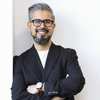
Award-winning inclusivity expert to speak at USW conference
14-05-2024
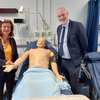
Health Secretary praises University’s sector-leading healthcare education facilities
10-05-2024

International Nurses’ Day 2024 | “Learning disability nursing is the embodiment of compassion”
10-05-2024
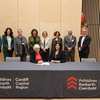
USW joins education partners in Wales-first economic wellbeing framework
09-05-2024

USW student named first-ever winner of IOSH competition
09-05-2024

The EU’s new ecocide law may still let environmental criminals get away with it
08-05-2024
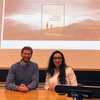
Peace-building in Afghanistan: academic inspired by Swisspeace
08-05-2024
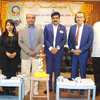
USW’s expertise in developing entrepreneurs recognised through Indian partnership
07-05-2024
